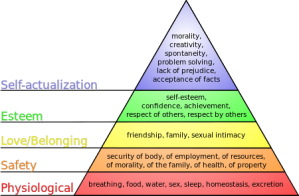Modern medicine is only just starting to understand the raw power of emotions. Yet the society we have created is very much geared towards rational thought, and using rational thought to plan ahead to get us where we want to be. For example, since the amount of adipose tissue we carry around is a function of the laws of thermodynamics, the rational person, i.e. the medic, will prescribe a combination of diet and exercise to prevent new cases of obesity, and the people will do as told. If it was only that easy.
It’s not as if people don’t understand the logic behind the prescription, it’s probably more a case of the prescriber being a little naive, for example when it comes to emotions and how they guide us. And once emotions are involved, rational thought pretty much goes out of the window. If you are on a diet, for example, you may know (using your rational mind) that binging your favorite food would be a mistake, but if you feel sadness, shame, guilt, anger or frustration, and binging some of that favorite food would take away those negative emotions, then over time it is a very uneven contest (especially when the thrill of weight loss is past).
Many people seem to not really understand how big a role emotions play in shaping their lives. Consider a major decision you have previously made, for example starting a new relationship or changing a job. Did you act according to rational thinking, or did you go by emotions and gut feelings.
Obviously you can act according to a combination of rational thinking and emotions, but whenever I use my brain too much in making a decision, I usually end up getting it wrong. When I listen to my feelings and emotions, if I feel really excited about something, I get it right 99% of the time. We ignore our feelings at our own peril.
But in many ways it seems as if we have increasingly disconnected from our emotions, and labelled them as something taxing and difficult. If you have a lot of negative emotions in your life, such as sadness, anger or frustration, that is certainly true. Conversely, your life will be pretty good if you frequently experience happiness, love and gratitude.
What seems to happen in our so called modern society is that we come up with a rational plan for how to get more of those positive emotions, for example, when I get that new job I will be so happy, or when I have some more money then I can finally have all those things I dream about. But this increasingly feels like a pipe dream. Will we ever be satisfied, will we ever stop chasing more? Perhaps the challenge is to just be happy with whatever we have and to be more in the moment, more in the now? And then we can perhaps enjoy more of those positive emotions and life will not be a struggle anymore.
And once those negative emotions and worries are cleared out, observe how health and quality of life improves.





